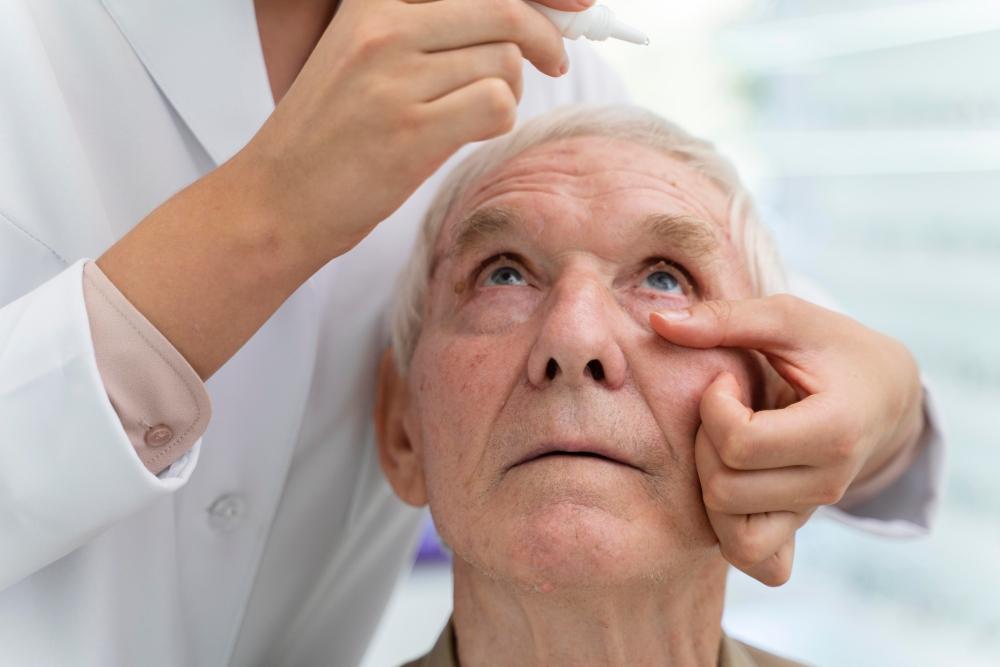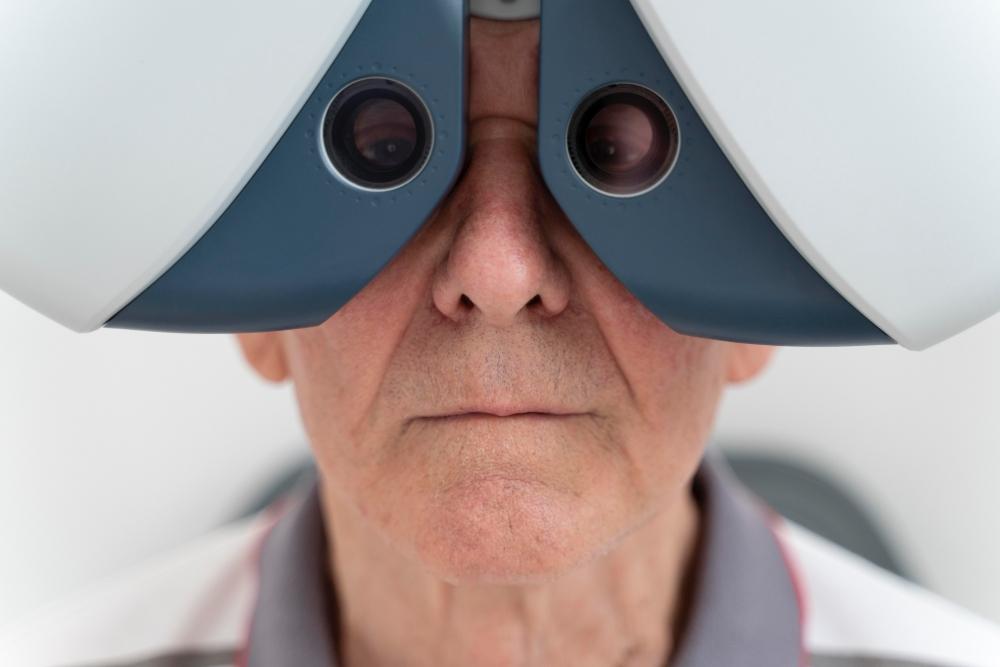Cataract surgery stands as one of the most commonly performed procedures worldwide. Its primary goal is to replace a cloudy natural lens with a clear artificial one, helping to improve vision that cataracts may have dulled.
Most patients may experience optimal recovery, and the benefits are almost immediate. However, some patients may experience cloudy vision after cataract surgery. While this can be disconcerting, understanding the potential causes and available treatments is advisable for an optimal recovery.
Overview of Cataract Surgery
Cataract surgery aims to improve an individual’s vision by addressing the cloudiness in the eye caused by the natural lens within the eye becoming opaque due to cataracts. The procedure involves removing and replacing the cloudy natural lens with a clear artificial lens. This artificial lens, known as an intraocular lens (IOL), functions much like the natural lens, focusing light onto the retina to create clearer images.
In most cases, cataract surgery in Singapore is a same-day procedure with rapid recovery. Patients may experience significant vision improvement within days, with continued progress over the following weeks. However, while most surgeries are potentially successful, it is advisable to be aware that complications, including cloudy vision, may occasionally arise post-cataract surgery.
The Common Causes of Cloudy Vision Post-Cataract Surgery
While cataract surgery may result in significant vision improvement, some patients may experience cloudy vision during the healing process. Understanding the potential causes of this temporary setback can alleviate concerns and ensure optimal recovery.
- Posterior Capsule Opacification (PCO): Think of the lens capsule as a transparent window behind your artificial lens. Sometimes, cells can migrate and grow on this capsule, causing it to become cloudy. This clouding is like a foggy window, obscuring your vision. PCO is the most common cause of cloudy vision after cataract surgery and typically occurs months or even years after the procedure.
- Inflammation: Just like a sprained ankle swells after an injury, the eye can experience inflammation after surgery. This inflammation can temporarily cloud vision but typically subsides with time and medication.
- Dry Eye Syndrome: After cataract surgery, the eyes may produce fewer tears than usual, leading to dryness and discomfort. This dryness can manifest as blurred or hazy vision, as if looking through a smeared window.
- Residual Refractive Error: In some cases, the artificial lens implanted during surgery may not be a perfect fit for your eye, leading to residual refractive errors. This can cause blurry or distorted vision, similar to wearing glasses with the wrong prescription.
- Other Causes: Less commonly, cloudy vision post-cataract surgery may be caused by other factors such as retinal detachment or infection. While these complications are less frequent, they may require prompt attention from your eye surgeon in Singapore.
Diagnosing the Cause of Cloudy Vision
If you experience cloudy vision after cataract surgery, communicating closely with your eye surgeon is advisable. The initial follow-up appointments post-surgery are critical in assessing your healing progress and identifying any potential issues.
During these appointments, your eye surgeon may use several diagnostic tools to pinpoint the cause of your cloudy vision. The slit lamp, a specialised microscope that provides a magnified view of the eye, allows your doctor to examine the front and back of your eye in detail.
Additionally, optical coherence tomography (OCT), an imaging method that generates cross-sectional images of the retina, can help detect any subtle changes or complications that may contribute to blurred vision, especially if you had surgery in recent times or especially if you’ve had cataract surgery recently.
Treatment Options for Cloudy Vision After Cataract Surgery
While the possibility of cloudy vision after cataract surgery may cause concern, your opthalmologist may recommend several approaches to address this condition and help improve your vision.
- YAG Laser Capsulotomy for PCO: A YAG laser capsulotomy may be recommended if PCO is the culprit behind your cloudy vision. This procedure involves using a laser to create a small opening in the cloudy capsule, allowing light to pass through unimpeded. In most cases, patients may experience immediate vision improvement following the procedure.
- Combating Inflammation: For inflammation-related cloudiness, your eye surgeon may prescribe anti-inflammatory eye drops to help relieve the discomfort and promote healing. These drops typically offer rapid relief, and your vision may gradually improve as the inflammation subsides.
- Managing Dry Eye Syndrome: Dry eye syndrome after cataract surgery can be addressed with artificial tears or lubricating eye drops. In more severe cases, your eye surgeon may recommend other treatment options, such as punctal plugs or prescription medications, to help improve tear production and alleviate discomfort.
- Correcting Refractive Errors: If your cloudy vision is due to residual refractive errors, your ophthalmologist may recommend a glasses prescription or, in some cases, a lens exchange or additional laser surgery to fine-tune your vision.

Proactive Measures
Taking proactive steps before and after a specific type of cataract surgery can contribute to your recovery and reduce the likelihood of experiencing cloudy vision. Before your procedure, be sure to discuss any existing health conditions or medications with your eye surgeon. Certain medications, like blood thinners, may need to be adjusted before surgery.
Following your surgeon’s post-surgery instructions is also advisable for an optimal outcome. This includes:
- Medication: Take any prescribed eye drops or medications as directed. These may include antibiotics to prevent infection and anti-inflammatory drugs to reduce swelling.
- Eye Protection: Wear protective eyewear as instructed to shield your eyes from dust, debris, and bright light.
- Activity Restrictions: Avoid strenuous activities or heavy lifting for a few weeks after surgery to allow your eyes to heal properly.
- Follow-up Appointments: Attend all scheduled follow-up appointments with your eye surgeon to monitor your progress and address any concerns promptly.
Ensure a Clear Path to Recovery with Professional Assistance
While cloudy vision after cataract surgery can be disconcerting, it is advisable to note that it may be a temporary and treatable condition. By attending your follow-up appointments, communicating any changes in vision to your eye care professional, and following post-surgery instructions carefully, you can reduce your risk of complications and ensure optimal recovery.
If you experience any concerns about your vision after cataract surgery, feel free to reach out to your eye care clinic. Early intervention and appropriate treatment can make all the difference in achieving optimal visual outcomes.

